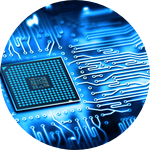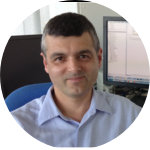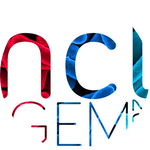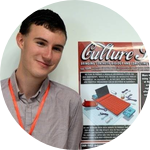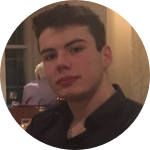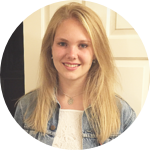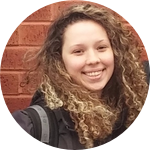About This Project
Imagine a light bulb. Now imagine a light bulb made up of bacteria that luminesce to produce light. Our project involves us replacing some of the traditional electronic components in a circuit with biological alternatives. The circuit will allow synthetic biologists to combine bacterial and electronic components to create electro-biological circuits. The ultimate goal is the fusion of synthetic biology and electronics to augment electronic devices.
Ask the Scientists
Join The DiscussionWhat is the context of this research?
The concept of BioBricks was first introduced by Tom Knight, founder of iGEM, at MIT in 2003. His vision was to standardise synthetic biological parts in a similar way to Lego bricks that interlock to form larger constructs. In turn, this has enabled research groups to engineer novel biological systems. Our team has been inspired by Tom Knight’s “Lego-like” approach to synthetic biology.
However, we pondered how we could mix electronic devices with synthetic biological devices. Our project therefore involves us replacing some of the traditional electronic components in a circuit with biological alternatives. Like Lego, the circuit will allow synthetic biologists to mix and match bacterial and electronic components to create electro-biological circuits.
What is the significance of this project?
Success in this project, with the production of a functional circuit, will provide the foundation for a new breed of science, fusing together biological and electronic technologies.
Electro-biological circuits could be a massive step forward due to their long term reliability and capacity to reproduce. A key concern associated with the Mars Mission, is the lack of processed materials available when they land. However, the self healing qualities and electrical excitability of neurons, could be a possible solution to defective circuitry.
Although we cannot predict which technologies our project will inspire, we are confident that they will have a significant impact on the field of biology.
What are the goals of the project?
The aim of our project is to produce a bacterial light bulb activated by electricity using genetically engineered E. coli bacteria that respond to electrical currents. This is possible by taking advantage of the bacteria's natural stress response.
When the bacteria is 'shocked' by a sudden temperature increase induced by a local electric current, a cascade of intracellular processes results in the production of a protein known as σ-32 transcription factor. This causes the transcription of our engineered construct resulting in the production of Green Fluorescent Protein (GFP).
Along the way we will be characterizing this process and releasing our data openly, to enable other researchers to work on hybrid bacterial-electronic systems.
Budget
The expenditures of this project range from DNA constructs and lab supplies to 3D and electrical manufacturing of components.
To successfully transform bacteria, we need custom-made DNA sequences which are very expensive and time consuming. Because we are breaking new ground, the sequences are not readily accessible which makes this the main focus of your investment.
We will integrate transformed bacteria into a Plug N' Play demonstration kit which can be used to teach high-school students about synthetic biology. With regards to manufacturing components, we are unable to travel with live bacteria so we will need to have a fully built electronic analogue of our system.
The other lab supplies include various chemicals needed for experimentation purposes while flow cytometry provides us with more accurate bacterial cell counts. Finally, conferences will allow us to collaborate with the range of experts we need.
Endorsed by
Meet the Team
iGEM Newcastle 2016
Our iGEM team consists of 8 undergraduates, 4 post-graduates (advisers) and 4 supervisors.
Our team is from a variety of backgrounds. Three members of our team are majoring in Computer Science, three are majoring in Biology and two are majoring in Biomedical Sciences.
We have found value in our wide range of personalities and diverse skill sets, allowing us to work to solve problems single disciplined teams would struggle with. We hope to secure funding to continue to develop our research in this exhilarating field. Upon our project's completion, we will take our findings to the iGEM jamboree in Boston where it will be presented to synthetic biologists from all around the world.
Ollie Burton
I am a second year Cellular & Molecular Biology student studying at Newcastle University and participating in the iGEM synthetic biology competition. This year we hope to improve our ability to interface biology and electronics and augment both fields.
In my spare time I play guitar in a blues-rock band and pursue technology blogging. I joined iGEM to increase my lab skills in preparation for my third year and gain exposure to new ideas to improve my lateral thinking ability.
Please find below my LinkedIn profile:
https://uk.linkedin.com/in/oli...
Jake Burton
I am a Computer Science student at Newcastle University in the UK and a member of the 8 strong 2016 iGEM Team working on creating biological analogues to electronic devices.
Lauren Mills
I have just finished my second year studying Cellular and Molecular Biology (BSc Hons) at Newcastle University and will start my third and final year in September. My third year project is looking at the effects of the antibiotic, metronidazole, and the possibility of using it to treat coral disease.
I am part of the "light bulb" alternative subgroup within our iGEM team and responsible for looking at engineering E. coli to fluoresce when an electrical current is passed through the growth medium. I am thoroughly enjoying the iGEM process and I believe it is a great opportunity for me to put into practise all the skills that I have learnt throughout my degree, as well as mastering new skills. I love working in the laboratory, as well as gaining an insight into the computing aspect of synthetic biology, such as simulation and modelling programmes.
In my spare time I enjoy travelling and volunteering abroad with organisations such as Operation Wallacea and the Maldives Whale Shark Programme. I am also a keen scuba diver and skier and I am an active member of both the University's Scuba Diving Club and the Ski and Snowboarding Club.
Rupert Truman
I'm a first year student at the University of Newcastle, studying for a bachelors degree in Computer Science. I joined the iGEM team for a fresh challenge and the chance to sink my teeth into the expanding field of synthetic biology. Outside of my academic pursuits, I play for the Newcastle University American football team and am hoping to start my own radio show.
Kerry Lewis
I am currently studying Computer Science at Newcastle University where I am being sponsored to become an Engineering Officer in the Royal Navy. My first year of university has strengthened my interest in programming and the theory of computation, and this encouraged me to continue developing my skills over the Summer. I wanted to learn more about the application of computer science to synthetic biology, and this inspired me to get involved with iGEM.
Our project has broadened my understanding of synthetic biology, and its application to real world problems. To date, one of my most memorable experiences in the lab has been the creation of a microbial fuel cell. I have also enjoyed the simulation aspects of the project and the challenge of learning new programming languages.
Aside from my commitments with the military, I play hockey for the university and I am a member of the Newcastle University Computing and Technology Society (NUCATS).
Josh Rushby
I am a second year Biology (BSc Hons) student at Newcastle university in the United Kingdom. I decided to apply to be a member of the iGEM team as it is a wonderful opportunity to gain first hand experience of research in the up and coming field of synthetic biology. I am very much enjoying being apart of such a driven and ambitious team with individuals from a range of scientific backgrounds. Our project involves what we believe is a whole new area of science by combining two different but complimentary fields.
Outside of the lab I am part of an intra mural rugby team as well as playing for my local cricket club. I am also part of the ski and snowboard society at the university and attend annual events. I also gained my PADI open water scuba diving certificate around 10 years ago and have pursued this hobby over the years.
Emilija Kopustaite
I am a second year BSc Biomedical Genetics student from Lithuania with a strong interest in evolution and epigenetics. In my free time I enjoy hiking, playing squash and learning Spanish. iGEM is a great opportunity for students to work on the project that is of particular interest to us and that's the reason I am very excited to be a part of this team.
Kristina Marko
I am currently a second year Biomedical Sciences (BSc Hons) student studying at Newcastle University. I chose to participate in the iGEM competition in order to be able to work with students from a range of scientific backgrounds who all have a passion for research and all bring together our areas of expertise in order to make a fascinating project. This year we are hoping to merge synthetic biology and computer science through our hybrid circuits.
In my spare time I enjoy part-taking in a variety of activities. Alongside being a member of my University's Tennis Team, I also love to volunteer through the NHS and am constantly joining different extra-curricular adventures.
Project Backers
- 57Backers
- 63%Funded
- $1,568Total Donations
- $27.51Average Donation

